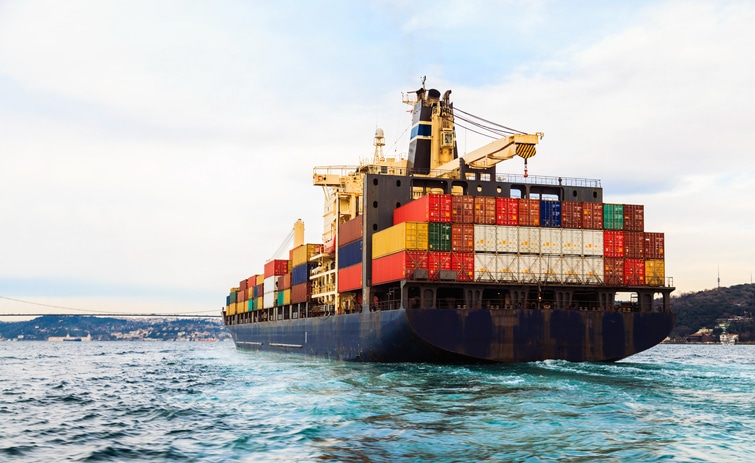The Bahamas (Northern Region)
Turks and Caicos
Amsterdam
Cyprus
Cayman Islands
Jamaica
Barbados
British Virgin Islands

June 08 2020

In maritime law, you’ve got to act fast. The unique geographical position of The Bahamas – and its acknowledged status as a major financial player attracting offshore investment – has made it an important centre of commercial maritime activity.
And as any corporation using shipping as part of its business will know, the prospect of engaging with ship arrest – whether as owner of an arrested vessel, or as a party seeking to arrange for an arrest – brings with it significant legal difficulties, and the possibility of considerable financial strain. The expert maritime and admiralty Bahamas lawyers at Parris Whittaker have years of experience advising ship owners and their crew and offices on their statutory rights, duties and responsibilities
What is Ship Arrest? And under what circumstances might it occur?
Simply put, a ship arrest prevents a vessel from moving or trading whilst a case or judgment is pending in court. The Bahamas is party to the Arrest Convention 1952, an international agreement which unifies and simplifies the law relating to the arrest of sea-going ships. Often, a ship will fly a flag indicating that it is party to the Arrest Convention – but it is not essential to the proper carrying-out of the arrest. Whilst the arrested vessel is in port, the ship and its crew must abide by the laws which govern that port until it is free to move.
Detaining a vessel is achieved by issuing a Warrant of Arrest, and anyone with a legitimate claim can seek a Warrant of Arrest to detain a vessel, if they can make any of the following claims:
• A claim to possession or ownership of the vessel, or a dispute with co-owners of the vessel (including sister ships);
• A claim relating to an outstanding mortgage on the ship;
• A claim for damage suffered to the ship, or caused by it;
• Any claim for death or injury caused by a defect in the ship, or by negligent behaviour on the part of owners or crew;
• A claim for loss of or damage to goods or assets conveyed by the vessel;
• A claim for payment to crew members and others who are employed on the vessel;
• A claim for payment for repair, equipment, construction and dock charges (including all necessaries);
• General costs such as towage and pilotage;
• Agreements relating to the use of the ship, such as chartering the vessel; and
• Claims relating to salvage.
Maritime Lien
A term often used in shipping and admiralty law is ‘maritime lien’. This simply means a binding claim which relates to a specific ship and/or its cargo and crew. It will typically refer to a payment from a voyage, such as seamen’s wages, or injury or damage arising from a collision. A maritime lien binds the vessel on open waters or in port, and is independent of the ship’s possession.
An additional important matter to consider is the status of ‘sister ships’ under the 1952 Arrest Convention – that is, vessels which are deemed to be in the same ownership as the arrested vessel. Where there is a financial claim against the owner of a ship, its sister ships may also be arrested until a satisfactory outcome of the claim is achieved, because they constitute a significant financial asset which might be important to the settlement of a claim.
What happens after a ship is arrested?
Once a vessel is arrested, it is in the interests of owner, crew and claimant to resolve the matter as swiftly as possible, enabling the ship to leave port, and ensuring all outstanding matters are settled justly and effectively.
In order to resolve a vessel arrest, one or more of a number of factors may be required:
• The arresting party permits the release of the vessel (often times a payment into Court is made or an undertaking given by the Insurer where applicable);
• The court orders the release of the vessel, finding no basis for the original claim; or
• On the ordering of the courts, those liable for paying a financial claim have made satisfactory arrangements to settle their debt (often including the costs of the vessel arrest).
The ultimate outcome of a vessel arrest will often (but not always) be the sale of the vessel, and the use of money arising from the sale to settle the claim. In addition to paying Court-ordered damages to claimants, there will be additional fees, such as:
• Court expenses;
• Legal and other expenses incurred by the claimant in the process of arranging the vessel arrest; and
• Expenses involved in arranging for the sale of the ship and the disbursement of assets.
It is evident that seeking to detain a ship under arrest, or finding that your vessel has been subject to an arrest, can have far-reaching financial and business consequences. Seeking expert, professional legal advice at the earliest possible stage is the best and only option when handling ship arrest matters. At sea, it is startling how quickly it is possible to watch your rights sail away.
The award-winning maritime law experts at Parris Whittaker have many years’ experience in handling vessel arrests, including acting on behalf of owners, captain, crew and insurers. If you are considering seeking a Warrant of Arrest, if your own vessel is under arrest, or if you need legal advice on any issues relating to maritime law, call the expert litigators at Parris Whittaker now, and they can begin acting on your behalf.
CLOSE X
